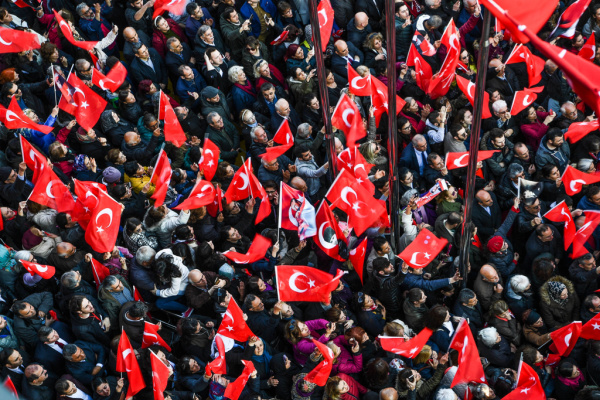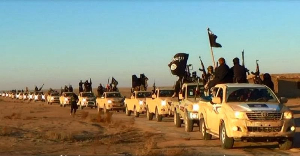The Istanbul Bombing and Soylu’s Power Play
By Gareth Jenkins
November 22, 2022
The response of Interior Minister Süleyman Soylu to the deadly bomb blast in central Istanbul on November 13th has raised more questions than it has answered and intensified already widespread concerns about the possibility that elements in the state apparatus will ratchet up security concerns in the run-up to the next presidential and parliamentary elections, which are due to be held by June 2023 at the latest. By taking such a high public profile, Soylu also appears to have seized on the opportunity presented by the attack to try to boost his public standing -- which has been badly damaged by a string of revelations by exiled organized crime boss Sedat Peker -- and take advantage of President Recep Tayyip Erdoğan’s absence at the G20 summit in Bali to assert his claim to being the second most powerful person in the government and Erdoğan’s heir apparent.

Turkey Temporarily Stands Down in Eastern Mediterranean Amidst Region-Wide Backlash
By Micha’el Tanchum (vol. 8, no. 2 of the Turkey Analyst)
With the close of 2014 witnessing the beginning of a de facto anti-Turkey bloc emerging in the eastern Mediterranean among the four countries with whom Turkey is in contention, the Turkish government has attempted to reduce tensions by removing a seismic exploration vessel and its escort ships from an area where the Republic of Cyprus has been drilling for offshore energy. However, the stand-down is likely to be temporary as campaigning intensifies in the run-up to Turkey’s all-important June 2015 parliamentary elections.

You Reap What You Sow: The Rise of ISIS and the Sectarian Dimension of the AKP’s Foreign Policy
By Halil Gürhanlı (vol. 7, no. 12 of the Turkey Analyst)
As the the Sunni militant group, the Islamic State of Iraq and al-Sham (ISIS), keeps expanding its sphere of influence deeper into Iraq, the Justice and Development Party (AKP) government of Turkey is facing a very real fear. Its neo-Ottoman dream of becoming a regional hegemonic power revered by ideologically affiliated governments in the Middle East is turning into a nightmare. The rise of ISIS is a painful reminder for Turkey that its Middle Eastern policies are bound to cause unpleasant side effects.

Turkey to Deploy Patriot Missiles
By Richard Weitz (vol. 5, no. 23 of the Turkey Analyst)
Turkey’s membership in NATO has many unique dimensions, including in the number of missile-related crises the country has experienced. Washington pledged to withdraw its nuclear missiles from Turkey during the 1962 Cuban Missile Crisis in return for securing a Soviet nuclear pull-out from Cuba. In 1990 and 2003, Turkey had to overcome West European qualms about deploying NATO air defense systems in Turkey to counter Saddam Hussein’s threats. After considerable wavering, Turkey averted a major NATO crisis in 2010 when it agreed to host advanced U.S. ballistic missile defense radar. Now Turkey has secured a NATO commitment to relocate some of the alliance’s most advanced air and missile interceptors despite considerable foreign and some domestic opposition.
Russia-Turkey Strains Deepen Over Syria
By Richard Weitz (vol. 5, no. 20 of the Turkey Analyst)
Despite vigorous efforts by Russian and Turkish policy makers, differences over Syria threaten to disrupt what has been a harmonious relationship. Leaders in Ankara are calling for President Bashar al-Assad’s immediate departure, while Moscow continues to support his regime if not al-Assad personally. Turkey’s leading role in organizing the anti-Assad resistance, Syria’s cross-border shelling of Turkish territory and Ankara’s recent decision to force a Syrian plane from Russia to land in Turkey threaten to worsen ties. However, Russia is nonetheless unlikely to take any drastic, punitive measures against Turkey because of the two countries’ still strong overlapping interests in other areas.





